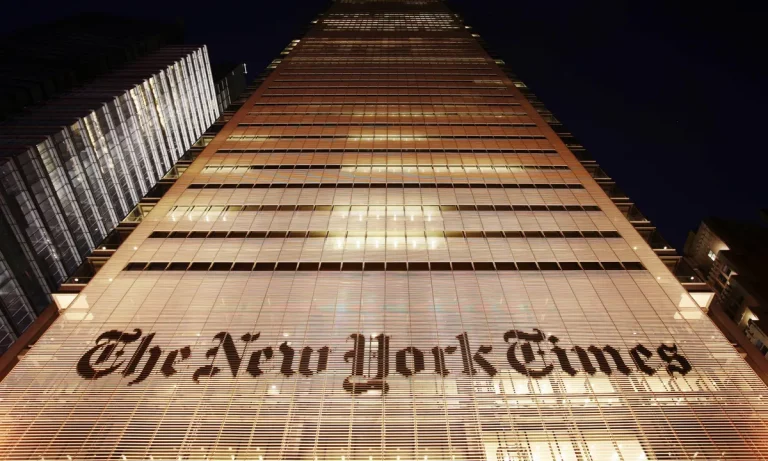
American-based daily newspaper company New York Times (NYT), has taken legal action, by suing Microsoft and OpenAI, the developer of ChatGPT, for allege copyright infringement.
The lawsuit which was filed in US District Court New York, claims that the generative AI tools that Microsoft and OpenAI have created, rely on large language models, or LLM, that were built by copying and using million of The Time’s copyrighted new articles, reviews, opinion pieces, amongst others.
Part of the lawsuit reads,
Register for Tekedia Mini-MBA edition 19 (Feb 9 – May 2, 2026): big discounts for early bird.
Tekedia AI in Business Masterclass opens registrations.
Join Tekedia Capital Syndicate and co-invest in great global startups.
Register for Tekedia AI Lab: From Technical Design to Deployment (next edition begins Jan 24 2026).
“While defendants engaged in widescale copying from many sources, they gave Times content particular emphasis when building their LLMs revealing a preference that recognizes the value of those works. Through Microsoft’s Bing Chat (recently rebranded as “Copilot”) and OpenAl’s ChatGPT, defendants seek to free-ride on The Times’s massive investment in its journalism by using it to build substitutive products without permission or payment.
“Powered by LLMs containing copies of Times content, Defendants’ GenAl tools can generate output that recites Times content verbatim, closely summarizes it, and mimics its expressive style, as demonstrated by scores of examples, including multiple pieces included as exhibits in the suit. These tools also wrongly attribute false information to The Times.
“By providing Times content without The Times’s permission or authorization, Defendants’ tools undermine and damage The Times’s relationship with its readers and deprive The Times of subscription, licensing, advertising, and affiliate revenue. If the Times and other news organizations cannot produce and protect their independent journalism, there will be vacuum that no computer or artificial intelligence can fill. Less journalism will be produced, and the cost to society will be enormous”.
The suit however does not include a monetary demand, but insist that defendants should be held responsible for billions of dollars in statutory and actual damages related to the unlawful copying and use of The Time’s uniquely valuable works.
The Times claims that for months, it has attempted to reach out to both companies for an agreement, but it has so far been unsuccessful.
As AI boom continue to spread across industries, media organizations have spent the past few years analysizing and examining the legal, financial and journalistic implications of this technology. Some news outlets have reportedly reached agreements to some of these AI companies for the use of their work.
It is important to note that lately, AI firms have come under fire for allegedly infringing on copyrights. On June 29, 2023, Two U.S. authors sued OpenAI in San Francisco federal court, claiming in a lawsuit that the company misused their works to train its popular generative artificial-intelligence system ChatGPT.
In the wake of this, The New York Times hired an editorial director of artificial intelligence initiatives, as media organizations look to leverage artificial intelligence in the newsroom and experiment with the technology, while still grappling with ethical choices to protect public trust.



